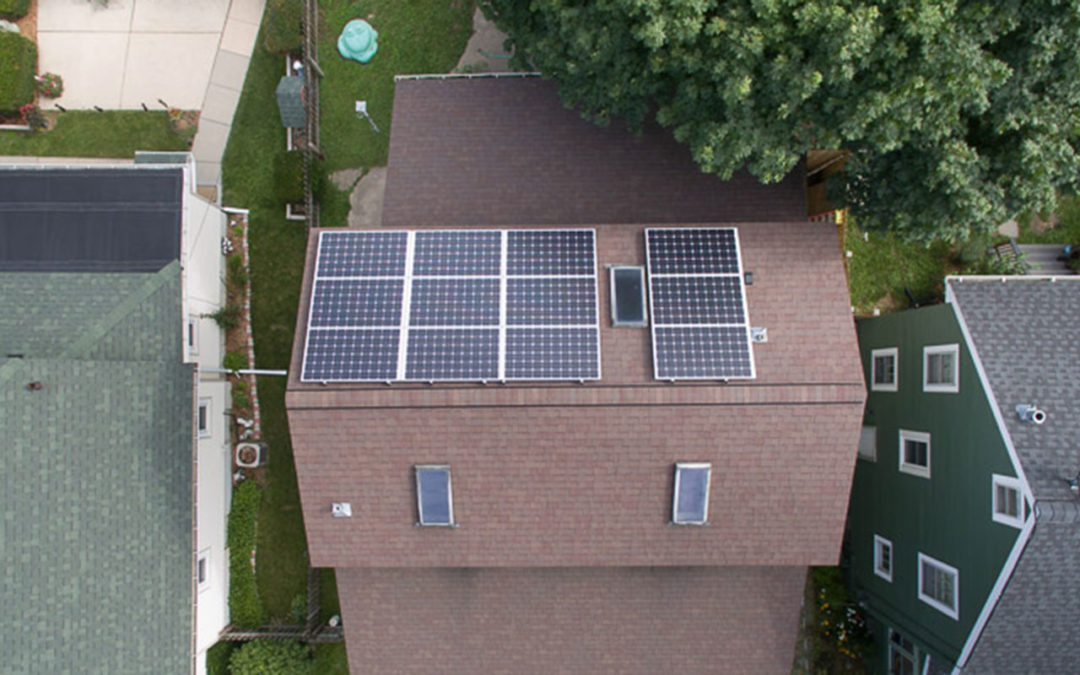In June of 2020, the Public Service Commission of Wisconsin (PSC) opened an investigation into parallel generation (docket 5-EI-157). Parallel generation refers to distributed generation (DG) that is sited at a customer’s premises and can 1) produce energy for the customer’s energy use, and 2) produce and sell to the utility energy that exceeds the customer’s use. The most common type of DG is a solar photovoltaic (PV) rooftop system.
According to the PSC Notice of Investigation, this ongoing parallel generation investigation aims to gather information on costs, markets, emerging technologies, and barriers to DG in the state. A January 2021 RENEW blog described the initial activities in the docket.
After gathering information, the PSC made an initial decision in the docket to further explore:
- avoided costs and buyback rates for DG;
- net metering;
- contracts; and
- consistent terminology and terms of service across the state.
To better understand the value of DG, the PSC directed the five largest investor-owned utilities in Wisconsin to provide modeling and calculations of ‘avoided costs’ and revise the rates at which the utilities purchase energy from DG (also called ‘buyback rates’).
The utility’s buyback rate is a critical economic variable for DG. When homeowners and businesses entertain the idea of solar generation on their rooftops, they must first consider the costs and benefits of installation. The principal economic benefits of installing solar are reducing the energy you buy from the utility and getting paid for the excess energy you sell to the utility. Outside of the net energy billing services available for small installations, most utilities in Wisconsin pay very little for the energy they purchase from DG customers. Utility payments to DG customers don’t recognize the value of local, clean energy, which then oppresses the development of DG and hinders the advancement of carbon reduction goals.
It became apparent that upcoming PSC decisions would reset buyback rates and influence the business case for DG in Wisconsin, potentially for decades to come. As a result, RENEW put together a plan to participate in the utility cases and contracted with GridLab and Synapse Energy Economics to provide expert testimony on the issues.
When the utilities filed their buyback rate applications in early September last year, there were no major surprises to the clean energy community. Rather than model and calculate the long-term avoided costs of local, renewable DG, as the Commission requested, utilities either cited short-term marginal prices for some costs or simply stated that DG provides no value for other costs. RENEW needed to do more than simply critique the utility applications. The RENEW team developed a complete counterproposal for the Commission’s consideration, premised on criteria established by the Commission and just, reasonable buyback rates for DG customers.
Over several months, RENEW collaborated with its consultants and Keyes & Fox, a firm dedicated to clean energy law. Focusing on the Commission’s conceptual framework of avoided energy, generating capacity, and transmission costs, RENEW’s team gathered information, developed and ran market models, and calculated buyback rates. This ensured that RENEW’s proposal would meet the Commission’s requirements and recognize the actual value renewable DG provides to all utility customers.
These efforts resulted in a comprehensive framework for the Commission to consider and adopt for all utilities across Wisconsin. The RENEW team is now submitting testimony and evidence to support this comprehensive framework in all five utility cases.
RENEW now needs your support! The Commission will soon open the public comment period for these five cases and needs to hear from clean energy organizations, climate activists, businesses, and residents across Wisconsin. Below is a list of the five utility cases. RENEW will update the list with dates and direct links to make public comments when the public comment period becomes known. Since Commission decisions in these cases will set a precedent for all utilities in Wisconsin, we encourage you to comment on all 5 cases.
Click on applicable links below to submit comments for each utility.
- Xcel Energy (4220-TE-109): comments closed on April 15
- Alliant Energy (6680-TE-107): comments closed on April 29
- MGE (3270-TE-114): comment period TBD
- Wisconsin Public Service Corporation (6690-TE-114): comment period TBD
- WE Energies (6630-TE-107): comment period TBD
Energy Policy Nerd Alert!
If you are interested in reading through the details of RENEW’s testimony filings, below are links to direct testimony filings for the case proceeding first (Xcel Energy, aka Northern States Power Company-Wisconsin). Testimony for other cases mentioned above will be available at a later date.
Direct Testimony of Andrew Kell
Direct Testimony of Michael Vickerman
Direct Testimony of Divita Bhandari (Synapse consultant)
Direct Testimony of Rachel Wilson (Synapse consultant)

